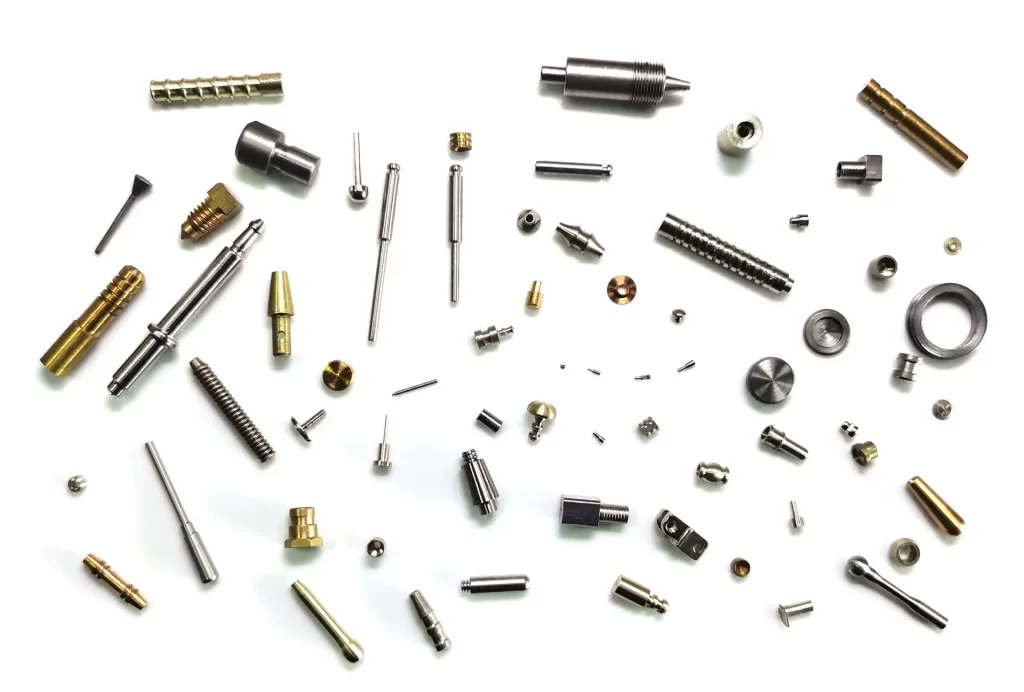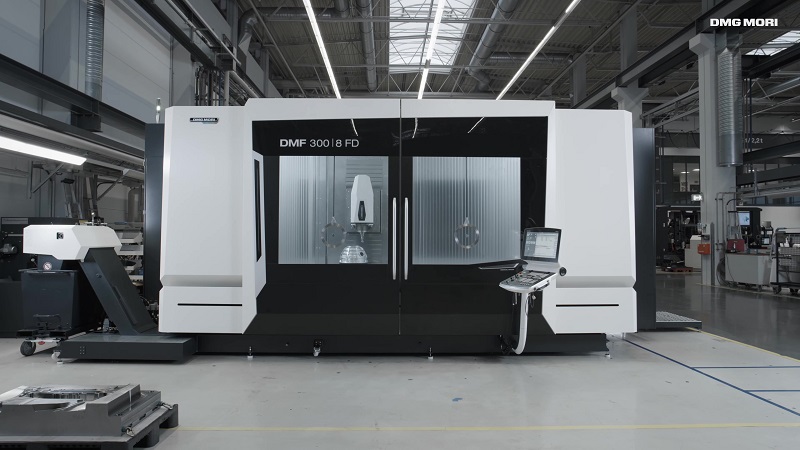Precision Micro Machining Services from China
Vertex has focused on CNC precision micromachining since 2001, working with metals and high-performance plastics.
- Over 40 Certified Materials
- Custom Finishes
- No Minimum Order
- Fast Turnaround
Save 30% on average!
Precision Micromachining For Complex Small Components
Vertex excels in precision micromachining for complex small components, meeting the growing global demand in industries like medical, fiber optics, and satellite technology. We utilize advanced machinery and tools capable of achieving extremely tight tolerances. Our cutting-edge equipment allows us to produce intricate micro components that are essential for high-precision applications. We specialize manufacturing parts where precision and size are critical, ensuring that even the smallest details are executed with exceptional accuracy and quality.
Micro machining refers to the precision manufacturing process that employs small CNC machines specifically designed to operate at a micro level. This technique utilizes tools such as micro mills, lathes, and electrical discharge machines (EDMs) to produce small parts with exceptional accuracy, achieving features as small as 1 μm.
Controlled by Computer-Aided Design/Computer-Aided Manufacturing (CAD/CAM) software, micro CNC machines translate 3D designs into precise cutting, milling, and shaping instructions for various materials, including metals, plastics, ceramics, and silicon.

Micromachining Materials
|
Metals
|
Description
|
Material Grades
|
Surface Treatments
|
|---|---|---|---|
|
Aluminum
|
Aluminum’s strength-to-weight ratio, affordability, and recyclability have made it widely used across industries worldwide.
|
6061-T6, 7075-T6, 2024, 5052, 6060, 5083, 2017, 6082
|
Alodine, Anodizing Types II, III + PTFE, ENP, Media Blasting, Nickel Plating, Powder Coating, Tumble Polishing
|
|
Stainless steel
|
Stainless steel’s corrosion resistance and ductility make it ideal for long-term exposure to elements and easy shaping into different forms.
|
SS303, Stainless Steel 304/304L, Stainless Steel 316/316L, Stainless Steel 17-4, Stainless Steel 416, etc.
|
As machined, Bead Blasted, Polishing, Decorative Chrome Plating, Powder Coat, Nickel Plating, Gold Plating, Silver Plating
|
|
Titanium
|
Provides excellent strength-to-weight ratio and corrosion resistance, ideal for aerospace and medical micro-machined parts.
|
Ti-6Al-4V, Ti-6Al-2Sn-4Zr-2Mo, Ti-3Al-2.5V
|
Polishing, Anodizing, Sandblasting, Chemical etching, Laser engraving and etc.
|
|
Magnesium
|
Lightweight with good machinability, used in applications requiring reduced weight in micro-machined components.
|
AZ31B, AZ91D, We43, AM60B, ZK60A, QE22
|
Blasting, Anodizing, Chromate Conversion Coating, Passivation, Powder Coating, Electroplating etc.
|
|
Alloy Steel
|
Alloy steel combines elements like manganese, nickel, and chromium for enhanced strength, hardness, corrosion resistance, and application-specific durability.
|
AISI 1215, AISI 4140, AISI 4340, AISI 8620, AISI 4130
|
Polishing, Plating, Painting, Powder Coating and etc.
|
|
Brass
|
Brass is an alloy of copper and zinc, especially metal material with more than 20% zinc content, which is the most commonly used metal material in cnc machining.
|
C360, C260
|
Nickel Plating, Bead Blasted, Gold Plating, Silver Plating
|
|
Copper
|
Copper is a soft, malleable metal with excellent thermal and electrical conductivity, making it an essential material in many industries.
|
C10100, C11000, C12200, C14500, C17200
|
Plating, Polishing
|
|
Plastics
|
Description
|
Material Grades
|
Surface Treatments
|
|---|---|---|---|
|
POM
|
High stiffness, good moisture resistance, high wear-resistance, and low friction, easy to machine
|
POM-C, POM-H, UV stabilized POM, Food-Grade POM
|
Polishing, Tumbling, Sandblasting, Chemical Etching, Laser Mark, Vapor Polishing
|
|
PMMA (Acrylic)
|
Optical clarity and resistance make it perfect for precision machining in optical and display applications.
|
Extruded PMMA, Cast PMMA, Impact-Modified PMMA, UV-Stabilized PMMA, Heat-Resistant PMMA
|
Polishing, Buffing, Sanding, Flame Polishing, Vapor Polishing, Bead Blasting, Chemical Polishing, Laser Engraving
|
|
PEEK
|
High heat resistance and chemical stability allow for detailed micromachining in demanding environments.
|
Unfilled PEEK, 30% glass-fiber reinforced PEEK, 30% carbon-fiber-reinforced PEEK, Bearing Grade PEEK
|
As Machined, Polishing, Sandblasting, Etching, Laser Marking, Annealing
|
|
PTFE (Teflon)
|
Extremely low friction, chemical resistance, ideal for seals and gaskets where lubrication is needed.
|
Virgin PTFE, Glass-Filled PTFE, Carbon-Filled PTFE, PTFE with MoS2
|
As Machined, Polishing, Etching, Sandblasting, Laser Marking, Annealing
|
|
PAI
|
Offers exceptional mechanical strength, thermal stability, and chemical resistance, ideal for aerospace and automotive high-performance applications.
|
Torlon4203, Torlon4503, Torlon4301,Torlon4501
|
Polishing, Sandblasting, Etching, Laser Marking, Coating
|
|
PEI
|
High strength and thermal resistance, with excellent electrical insulating properties, suitable for aerospace and electronics.
|
Unfilled PEI, Glass-Filled PEI, Carbon-Filled PEI, Ultem PEI
|
Polishing, Sandblasting, Etching, Laser Marking, Annealing
|
|
ABS
|
Durable and easy to machine, suitable for prototypes and complex geometrical components.
|
General purpose ABS, Flame retardant ABS, High impact ABS, Heat-resistant ABS
|
As Machined, Vapor Polishing, Painting, Electroplating
|
|
Nylon (PA)
|
Offers high strength, wear resistance, and machinability, making it suitable for load-bearing applications.
|
Nylon 6, Nylon 6/6, Nylon 11, Nylon 12
|
As Machined, Polishing, Sandblasting, Etching, Coating, Annealing
|
Our Micro Machining Experience
- Nozzles: engineered nozzles for medical device applications.
- Gears: Miniature gears for the robotics industry.
- Sensors: Small-scale sensors for wearable technology.
- Connectors: High-precision connectors for telecommunications.
- Optical Lenses: Miniature lenses for endoscopic equipment.
- Probes: Precision probes for scientific instrumentation.
- Seal assemblies for deep water applications

What are the typical tolerances achievable in micromachining?
Micromachining typically achieves tolerances as tight as ±1 to 5 microns, depending on the material and process. This precision is crucial for industries requiring high accuracy, such as electronics, medical devices, and aerospace components.
What industries benefit from micromachining?
Industries like medical, aerospace, electronics, and automotive benefit from micromachining. It enables the production of intricate, high-precision components essential for advanced technologies, including sensors, implants, and microelectronics, offering innovation and enhanced performance.
What are the advantages of micromining?
Micromachining offers precision,, and efficiency. It enables the production of complex geometries, reduces material waste, and improves product performance. The process is for applications requiring intricate features and minimal tolerances in various industries.
What are challenges associated with micromachining?
Challenges in micromachining include managing tool wear, achieving consistent precision, and handling complex geometries. Additionally, maintaining surface quality and controlling costs while working with diverse materials pose significant hurdles for manufacturers.
Do surface finishes affect the size of micromachined parts?
Yes, strictly speaking, all kinds of surface treatments can have some effect on part dimensions, which may not be so critical for general applications, but for applications with particularly high precision requirements, surface treatments need to be treated with special care
Can micromachining be used for prototyping and Low volume?
Yes, micromachining is ideal for prototyping and low-volume production. It enables rapid iteration, customization, testing of intricate designs, offering cost-effective solutions for small batches without compromising precision and quality.
